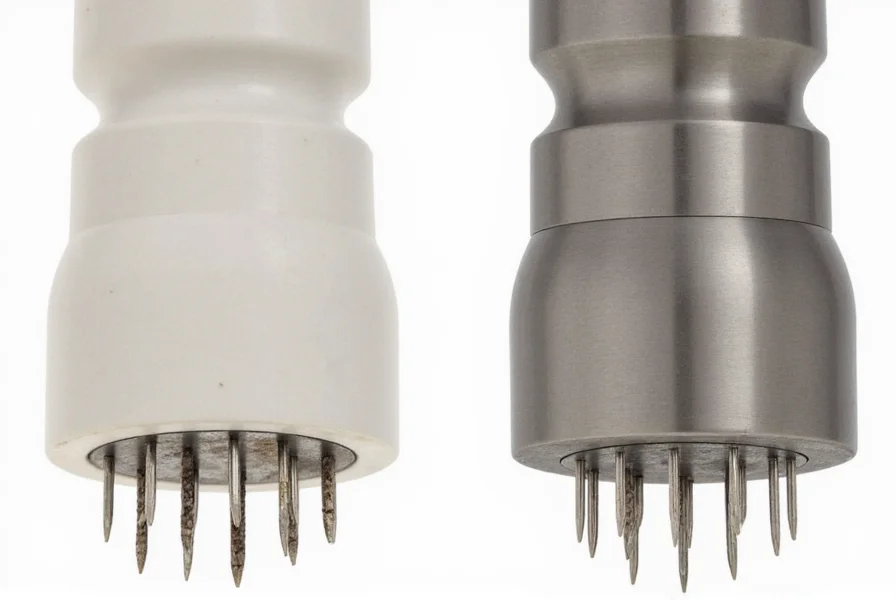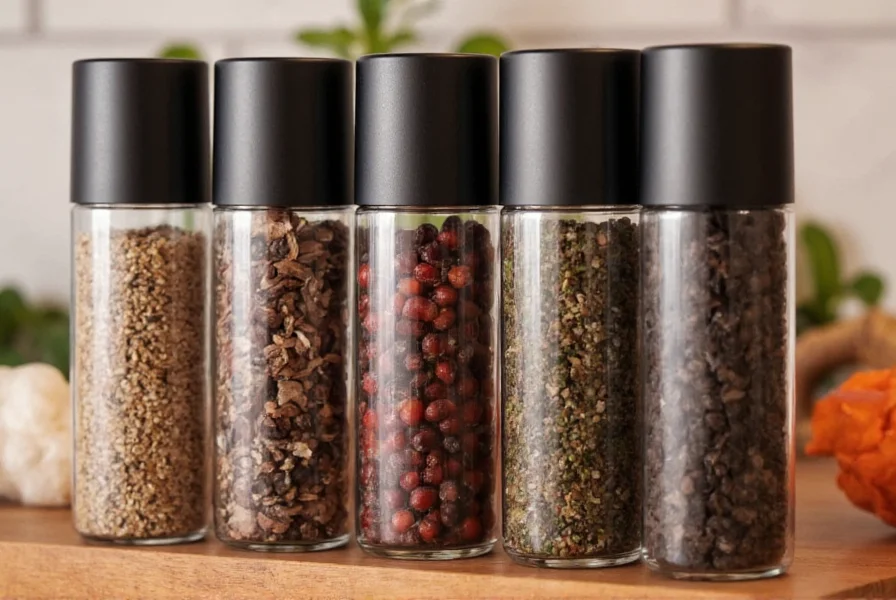Understanding what makes a quality pepper grinder goes beyond simply crushing peppercorns. Freshly ground pepper delivers significantly more complex flavor and aroma compared to pre-ground versions, which lose their volatile compounds during processing and storage. This fundamental difference explains why professional chefs and home cooks alike prioritize having reliable grinding equipment in their kitchens.
Types of Pepper Grinders and Their Mechanisms
Pepper grinders fall into two main categories based on their grinding mechanism: manual and electric. Within these categories, the grinding material significantly impacts performance and longevity. Let's examine the key differences between ceramic and metal mechanisms, which represent the most common options available to consumers.
| Mechanism Type | Best For | Lifespan | Flavor Preservation | Maintenance Needs |
|---|---|---|---|---|
| Ceramic | Peppercorns, salt (non-iodized) | 10+ years | Excellent - doesn't heat peppercorns | Low - resistant to corrosion |
| Stainless Steel | Peppercorns, harder spices | 5-8 years | Good - may slightly heat peppercorns | Moderate - requires occasional cleaning |
| Carbon Steel | Peppercorns only | 3-5 years | Fair - can impart metallic taste | High - prone to corrosion |
Why Ceramic Mechanisms Outperform Metal Options
When selecting the best pepper grinders for home use, ceramic mechanisms offer distinct advantages. Unlike metal grinders that generate heat through friction, ceramic mechanisms operate at cooler temperatures, preserving the delicate essential oils in peppercorns that contribute to complex flavor profiles. This scientific principle explains why culinary professionals consistently recommend ceramic options for serious cooks.
Stainless steel mechanisms remain popular for their durability and ability to handle harder spices, but they require more maintenance to prevent corrosion. Carbon steel mechanisms, while initially sharp, tend to degrade faster and can impart metallic flavors to your pepper—making them less desirable for discerning cooks seeking pure pepper flavor.

Manual vs Electric Pepper Grinders: Making the Right Choice
How to choose a pepper grinder depends largely on your cooking habits and kitchen setup. Manual pepper grinders provide superior control over grind size and offer the tactile satisfaction many cooks appreciate. They require no batteries or electricity, making them reliable kitchen staples. The most ergonomic manual designs feature comfortable grips and smooth turning mechanisms that reduce hand fatigue during extended use.
Electric pepper grinders shine in convenience-focused scenarios. With the press of a button, they deliver consistent grinding without manual effort—ideal for those with limited hand mobility or when preparing large quantities of food. However, they typically offer less precise control over grind size and require battery replacements or charging.
Key Features That Define Quality Pepper Grinders
When evaluating pepper grinder options, several features distinguish exceptional models from mediocre ones. Adjustable grind settings represent perhaps the most critical feature, allowing you to switch between fine powder for baking and coarse cracks for steak seasoning. The best pepper grinders offer smooth, precise adjustments without grinding mechanisms that slip or stick.
Build quality directly impacts longevity. Look for models with solid construction where components fit together without wobbling. High-quality plastic, stainless steel, or wood bodies each offer different aesthetic and functional benefits. Transparent pepper chambers allow you to monitor peppercorn levels, while magnetic lids prevent accidental spills.
Maintenance Practices for Long-Lasting Performance
Proper pepper grinder maintenance extends its useful life significantly. For ceramic mechanisms, occasional cleaning with dry rice grains helps remove residue without damaging the mechanism. Never immerse the grinding mechanism in water, as this can compromise its integrity. Instead, wipe exterior surfaces with a damp cloth and allow to air dry completely.
Storing your pepper grinder with peppercorns inside prevents the mechanism from drying out, but avoid keeping it in humid environments like near the dishwasher or sink. For electric models, replace batteries before they leak to prevent internal damage. Regular maintenance ensures consistent performance and prevents the frustrating experience of a grinder that suddenly stops working properly.
Common Misconceptions About Pepper Grinders
Many home cooks operate under misconceptions about pepper grinding equipment. One prevalent myth suggests that salt can be used in any pepper grinder. In reality, standard salt contains anti-caking agents that quickly destroy metal mechanisms, while iodized salt causes additional corrosion issues. Dedicated salt grinders use specialized ceramic mechanisms resistant to salt's corrosive properties.
Another misconception involves the belief that more expensive grinders always perform better. While premium models often offer superior craftsmanship, many mid-range options deliver excellent performance for home cooking needs. The key is understanding which features matter most for your specific cooking style rather than simply choosing the most expensive option.
Integrating Pepper Grinders Into Your Culinary Routine
Understanding how to use a pepper grinder effectively transforms your cooking experience. For maximum flavor impact, grind pepper directly onto finished dishes rather than incorporating it during cooking. The volatile compounds responsible for pepper's complex aroma dissipate quickly when exposed to heat. This simple technique elevates everything from scrambled eggs to grilled meats.
Consider keeping multiple grinders with different settings for various cooking applications. A fine setting works well for baking and delicate sauces, while medium settings suit most general cooking needs. Reserve coarse settings for steak seasoning or recipes where visible pepper flakes enhance presentation. This approach to pepper grinder usage maximizes flavor potential across your culinary repertoire.











 浙公网安备
33010002000092号
浙公网安备
33010002000092号 浙B2-20120091-4
浙B2-20120091-4